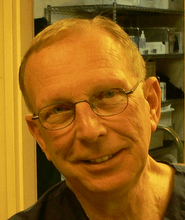Western societies focus on the negative aspects of aging, but there are plenty of positives, too. Freud wrote some of his greatest works after age 65; Sophocles wrote Oedipus at Colonus at age 71.

 Few of the developmental psychologists, however, spent much on mature mental development. Jean Piaget ended mental development with “formal operations,” abstract thinking maturing in the teen years. Erik Erikson delineated eight stages of psychosocial development, defining each in terms of an issue or conflict requiring resolution before advancing. His work, Identity and the Life Cycle, had only one page each on the last two stages of life.
Few of the developmental psychologists, however, spent much on mature mental development. Jean Piaget ended mental development with “formal operations,” abstract thinking maturing in the teen years. Erik Erikson delineated eight stages of psychosocial development, defining each in terms of an issue or conflict requiring resolution before advancing. His work, Identity and the Life Cycle, had only one page each on the last two stages of life. In spite of their omissions, there are four distinct development stages in late life:
1. Midlife Revaluation: This isn’t the same as mid-life crisis, but is a quest, a desire to break new ground and answer deep questions such as “What is a true and meaningful life?” This period generally occurs between 40- and 65-years of age.
2. Liberation: This overlaps the midlife reevaluation period since it runs from late 50s through the 70s. It is a period experimentation, innovation, and striving to free oneself from earlier inhibitions and limitations. The brain undergoes significant physiological changes giving more balance between the hemispheres. Attitude becomes, “If not now, when?”
3. Summing Up: From late 60s through 80s, one recapitulates, resolves, reviews, with manifestations being volunteerism and philanthropy, a giving back.
4. Encore: This variation on a theme manifests as a desire to go on, even through adversity and loss, to remain vital, and often leads to new creativity and social engagement.
Each of these energizes power motivations, especially when not impaired with negative illusions of aging. Previously, an assumption that the brain could not generate new neurons, and one could merely delay deterioration, formed such an impediment. Scientifically, these are disproven and one can indeed generate new capabilities with activities such as exercising mentally, physically, adopting challenging leisure activities, seek mastery of various skills and activities, and establish strong social networks.
“All that is valuable in human society depends upon the opportunity for development accorded the individual. ~ Albert Einstein


Erikson and his wife Joan added a 9th stage for the "Old old" after they both were over 80.
ReplyDeleteJoan peblished it after the death of her husband: "Cycles of Life Completed".
You may be also interested in the term Gerotranscendence as another positive concept about old age.
zviamely@gmail.com
Thank you for your post on the Eriksons' additional stage and on Gerotranscendence. I am off, happy as a clam, to learn more, and will no doubt post what I find.
ReplyDelete